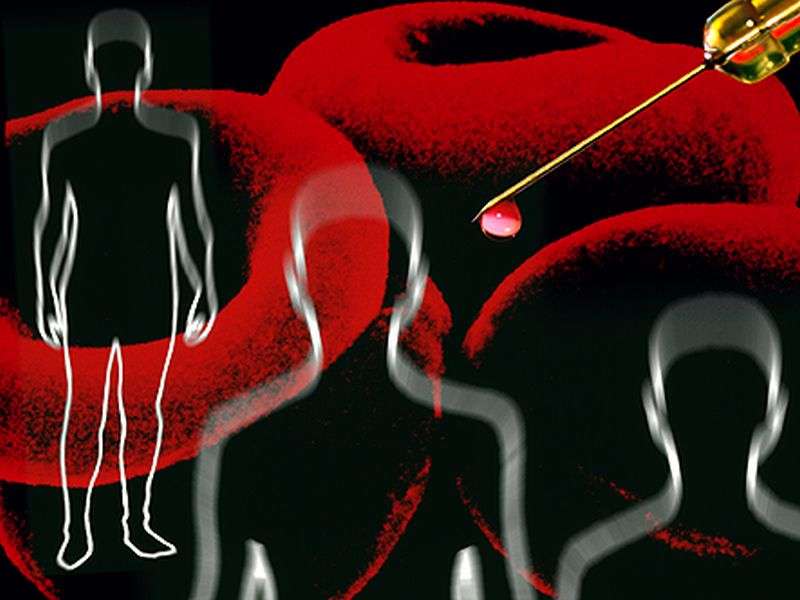(HealthDay)—Patients with thalassemia treated with hematopoietic stem cell transplantation (HSCT) have 30-year survival that is similar to that of conventionally treated (CT) patients, according to a study published online Aug. 29 in the American Journal of Hematology.
Giovani Caocci, M.D., from the University of Cagliari in Italy, and colleagues performed a single-center case-control study involving 258 patients who underwent sibling or unrelated HSCT (97 adults) and 258 age- and sex-matched CT patients.
The researchers found that in transplanted patients, the 30-year overall survival (OS) was 82.6±2.7 percent and thalassemia-free survival (TFS) was 77.8±2.9 percent compared with OS of 85.3±2.7 percent in CT patients (P = NS). Grade II-IV acute and chronic graft versus host disease incidence was 23.6 and 12.9 percent, respectively. There was a 6.9 percent probability of rejection. Transplant-related mortality was 13.8 percent, which was similar to the 12.2 percent cardiovascular event mortality in CT patients. High-risk Pesaro score correlated with lower OS and TFS (odds ratios, 1.99 and 1.54, respectively). For adult patients, the 23-year OS and TFS were 70±5 percent and 67.3±5 percent after HSCT compared with OS of 71.2±5 percent in CT (P = NS).
"The 30-year survival rate of ex-thalassemia patients after HSCT was similar to that expected in CT thalassemia patients, with the vast majority of HSCT survivors cured from thalassemia," the authors write.
More information:
Abstract
Full Text (subscription or payment may be required)
Journal information: American Journal of Hematology
Copyright © 2017 HealthDay. All rights reserved.























